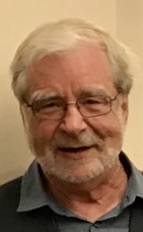A Framework for Our Thinking
- Marvin T. Brown

- Nov 3, 2021
- 4 min read
Updated: Mar 28, 2023

It seems much more complicated to get out of the mess we are in than it was to get in it. You can change the game of basketball a bit, for example, on the same basketball court. If you want to change it a lot, you will have to change the court.
In the first part of my book A Climate of justice, I propose we use a different court. Instead of the common Western model of thinking in triads or threes, I propose we think in fours. Triadic thinking gives us “the economy, government, and civil society.” I propose a framework of “the Earth, our humanity, the social, and the civic.” Triadic thinking also gave us “Father, Son, and Spirit,” so I don’t want to eliminate it. Still, it’s the framework that got us in the mess we are in. I suggest a different framework of four elements that does the following:
Gives due prominence to the Earth, our provider and habitat.
Grounds our dignity in our human existence.
Acknowledges we always exist in social relations.
Provides a civic space where we can repair injured and broken relationships with others and the earth.
These four elements and their relations to each other give us a lot to think about, and a perspective for telling what I call “telling stories” of American history. Other advantages of this framework are detailed in the book, which will soon be available. I am happy to announce that the book will be an Open Access book. For now, let’s look at how the framework offers us a different way of thinking about how we are equal and unequal.
Triadic thinking usually locates our inequalities in the economic and government spheres, and our equality in the civic sphere. Our social differences, in other words, are erased in the civic. There we are equally human regardless of our social and historical identity. I think this view of the civic sphere is a mistake.
I know we have learned that “all men are created equal,” but we are not all born equal. Each one of us is born in a social world, and our different social worlds are anything but equal. Let’s remember that some of the writers about equality bought and inherited enslaved persons. Slave and free may have been “created” equal, but they sure were not born equal.
In A Climate of Justice, I propose that our social differences are not erased in the civic, but rather can be made right. In fact, it is an illusion that we privileged people can simply take off our privileged dress and put on a common one, or that we can treat those whose dignity has been denied as though their stories have ended. We always belong to some social world and participate in social relations with others. The social is ubiquitous.
Yes, we are human beings and have “human rights,” but we are always embedded in social worlds and social relations. Each of us, given the opportunity, can witness our own humanity—our dignity—as a living, purposeful being. This dignity, however, needs a home, a safe place, and that place exists in social relations.
In fact, we rarely experience our own humanity except in social worlds and relations, and, for the most part, the humanity we share is not something we experience in the same way. It’s a mistake for privileged white people to define civil society as a place without history, without broken relationships, without the power to move toward a climate of justice.
In A Climate of Justice, I define the civic as a space composed of two groups: civilians and citizens. Civilians are vulnerable persons and groups who have a right to the protection of the rule of law, and citizens are persons who have the capacity to honor the rightful claims of civilians. Who has not witnessed such divisions in our nation? The civic does not erase these social injuries, however, but rather heals them. This view of the civic comes closer to the image of a Civilian Review Board as a model for democracy instead of the Town-Hall Meeting, which assumes that everyone has an equal capacity to participate. The Civilian Review Board assumes that some are vulnerable and need protection and others can protect them.
This civilian/citizen relationship could emerge from a caring response to the social condition of refugees on our border, or the demand of Black Lives Matter for police to protect their communities. The civic is not a space that ignores the plight of civilians, in other words, but rather facilitates the empowerment of civilians so their voices bring about a climate of justice.
The social and the civic present different challenges. Increasing prosperity for all may meet the social challenge, but not the civic. The civic challenge is always the empowerment of civilians, which in many cases simply means to stop pushing them down. Democracy, in the final analysis, is dependent on empowered civilians, who can point out the repair that must happen before we can move toward a sustainable future.
The fate of the Earth, in other words, is tied up with the fate of our civic relations. If we want to protect one, we must also protect the other.

Comments